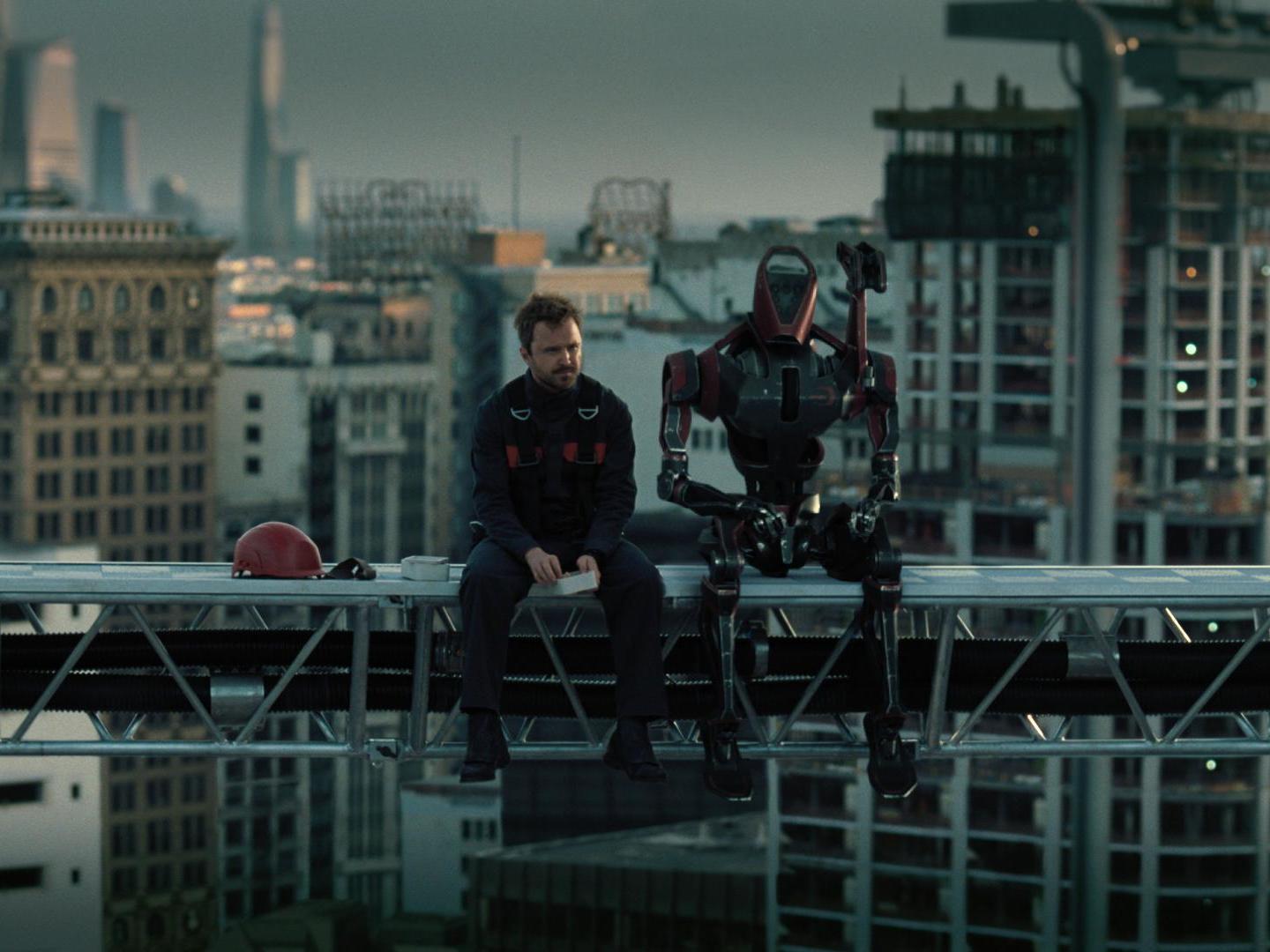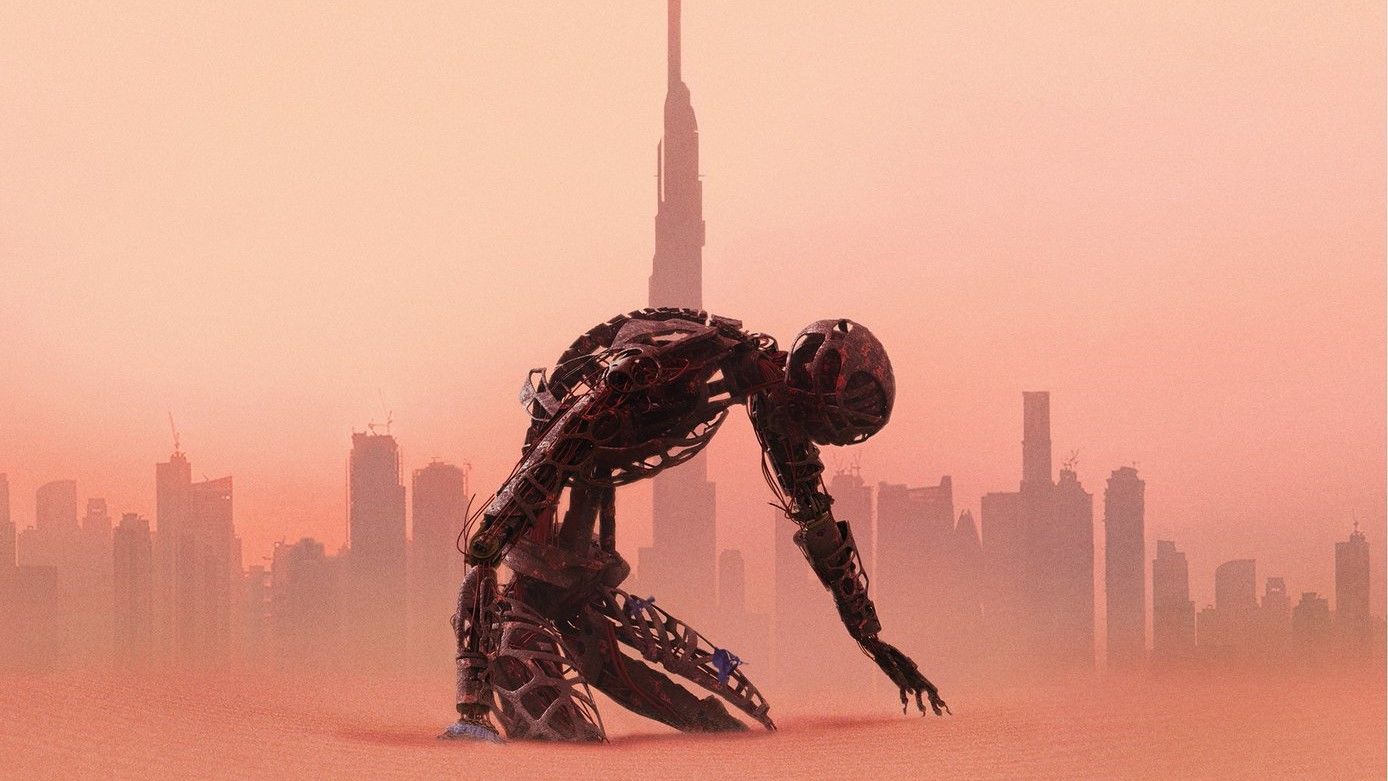I'm still enjoying this series, even if this third season became far more like other sci-fi films and TV shows than its more unique first two seasons. It's also grown emotionally colder as it has progressed.
At the end of season 2, the Westworld theme park was completely finished, with nearly all of the remaining hosts' "consciousness" having escaped into a virtual reality after being guided by Maeve. Meanwhile, Dolores (Evan Rachel Wood) had escaped the park, bringing with her a handful of other influential hosts' memory orbs. This third season picks up from there, with Dolores beginning her assault on the entire state of human society. She uses her abilities to infiltrate some of the wealthiest, most powerful computer programming companies, in order to gain access to the immense control they have over people's lives. Before long, she is in the crosshairs of Engerraud Serac (Vincent Cassel), a shadowy man who seems to wield nearly unlimited knowledge and financial power, and who has resurrected Maeve to use in his fight against Dolores. All the while, Bernard (Jeffrey Wright) and a few other faces familiar from the first two seasons try to reach Dolores to either help or stop her.
This season was another solid one, but I wasn't as engrossed as with the first two seasons.
The themes are meaty ones, which are relevant and worth pondering. The primary one is how big data could potentially be used to build predictive programs that completely dominate human life. And not in the slightly-concerning "they know what I'm buying at the grocery store" kind of way. No, we're talking more like a Gattaca-style "We're going to lay your entire life out for you based on our algorithms" kind of way. This, as you can imagine, has some pretty dark impacts on people's lives, but people aren't even aware of them. It's not a massive leap for us viewers to see out digital society headed on a path not unlike what we see depicted in this season.
As with any and every Nolan brother production, the story is multi-layered and complex, sometimes to a fault. It's certainly not a casual watch, as it requires close attention to keep up with the ever-shifting characters, identities, their relationships to one another, and the plots against each other. This can be enjoyable, but the entertainment value sometimes takes a hit, buckling under the weight of attempted sophistication and profundity. More than this, though, is that we are once again mostly dealing with non-human characters fighting more for intellectual, philosophical ideas. There are some touches of true, human feeling - mostly in the form of the character Caleb Nichols (Aaron Paul) - but they usually take a back seat to the grander themes and overall scope of the story.
This season does still feature a few really solid action sequences, and the look and feel are as slick as anything we've seen in the show thus far. I must say, though, that this season - the first one that takes place almost completely outside of the Westworld-type theme parks - doesn't feel as distinct as the first two. Rather, it has the same mostly high-polish aesthetic which we've seen in so many other sci-fi shows and films, most notable the Blade Runner movies, Minority Report, and several others. This, combined with having themes shared in other shows released around the same time, like FX's recent Devs and others, make Westworld feel less novel.
I had originally thought that this was meant to be the final season. I have since learned that there is at least one more season planned. I'll watch it, though I won't be heading into it with the same enthusiasm as I was season two or three. It's feeling like a show that needs to reach its conclusion soon, or risk feeling like it's floundering for a way to wrap itself up.
At the end of season 2, the Westworld theme park was completely finished, with nearly all of the remaining hosts' "consciousness" having escaped into a virtual reality after being guided by Maeve. Meanwhile, Dolores (Evan Rachel Wood) had escaped the park, bringing with her a handful of other influential hosts' memory orbs. This third season picks up from there, with Dolores beginning her assault on the entire state of human society. She uses her abilities to infiltrate some of the wealthiest, most powerful computer programming companies, in order to gain access to the immense control they have over people's lives. Before long, she is in the crosshairs of Engerraud Serac (Vincent Cassel), a shadowy man who seems to wield nearly unlimited knowledge and financial power, and who has resurrected Maeve to use in his fight against Dolores. All the while, Bernard (Jeffrey Wright) and a few other faces familiar from the first two seasons try to reach Dolores to either help or stop her.
This season was another solid one, but I wasn't as engrossed as with the first two seasons.
The themes are meaty ones, which are relevant and worth pondering. The primary one is how big data could potentially be used to build predictive programs that completely dominate human life. And not in the slightly-concerning "they know what I'm buying at the grocery store" kind of way. No, we're talking more like a Gattaca-style "We're going to lay your entire life out for you based on our algorithms" kind of way. This, as you can imagine, has some pretty dark impacts on people's lives, but people aren't even aware of them. It's not a massive leap for us viewers to see out digital society headed on a path not unlike what we see depicted in this season.
As with any and every Nolan brother production, the story is multi-layered and complex, sometimes to a fault. It's certainly not a casual watch, as it requires close attention to keep up with the ever-shifting characters, identities, their relationships to one another, and the plots against each other. This can be enjoyable, but the entertainment value sometimes takes a hit, buckling under the weight of attempted sophistication and profundity. More than this, though, is that we are once again mostly dealing with non-human characters fighting more for intellectual, philosophical ideas. There are some touches of true, human feeling - mostly in the form of the character Caleb Nichols (Aaron Paul) - but they usually take a back seat to the grander themes and overall scope of the story.
 |
| Caleb relaxes at his construction job with a robot assistant. Caleb, played well by the reliable Aaron Paul, is really the one and only strong human connection that we viewers get in this season. |
I had originally thought that this was meant to be the final season. I have since learned that there is at least one more season planned. I'll watch it, though I won't be heading into it with the same enthusiasm as I was season two or three. It's feeling like a show that needs to reach its conclusion soon, or risk feeling like it's floundering for a way to wrap itself up.

No comments:
Post a Comment